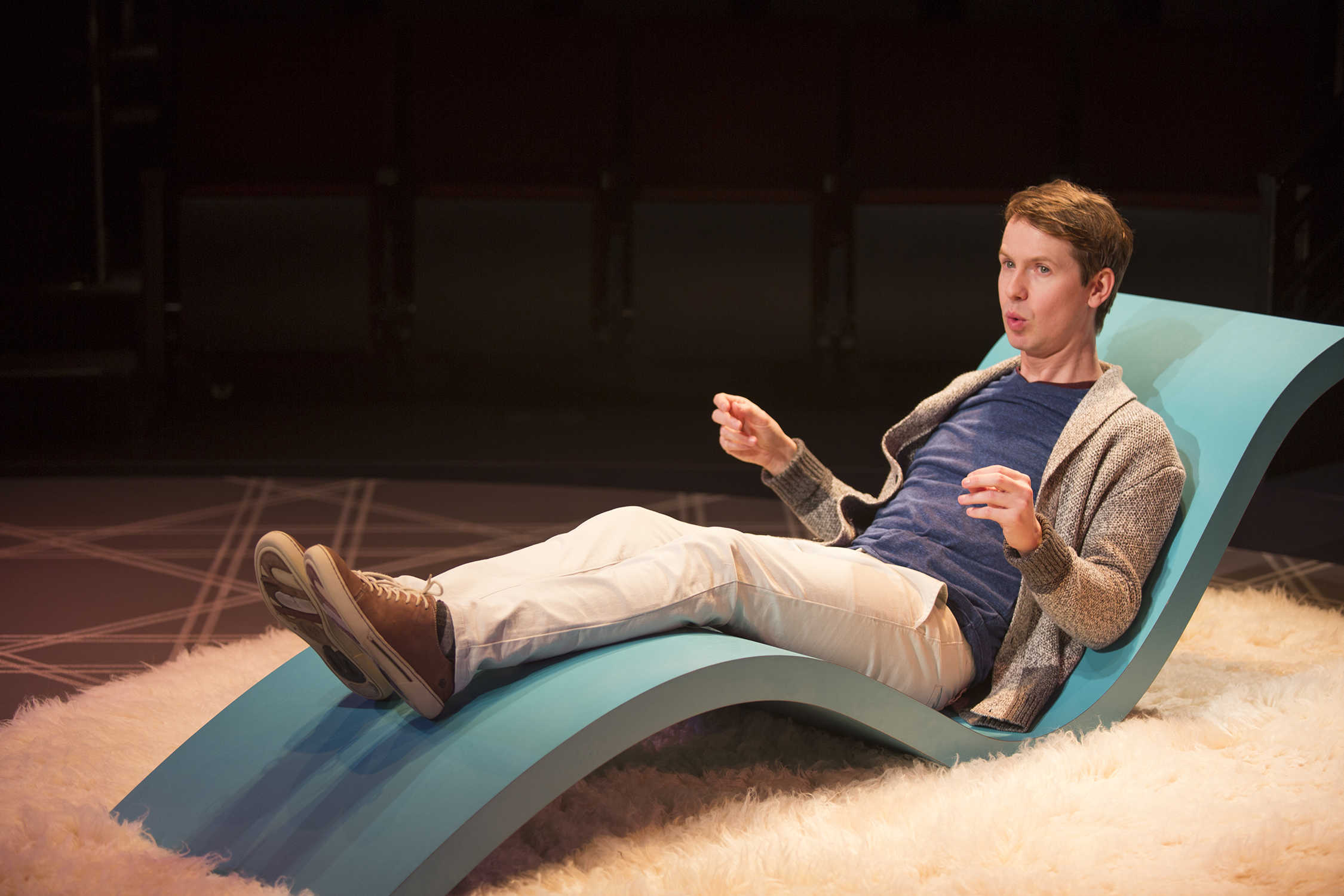Fantasy and reality unite in this effervescent critique of celebrity culture.

Rating: 4.0/5.0 stars
Directed by Ron Lagomarsino
Written by Jonathan Tolins
Starring David Turner
Runs April 9 to May 10
Location: The Old Globe
There has never been a play with so much Barbra Streisand, while lacking in actual Barbra Streisand. In fact, she has become such an icon that Jonathan Tolins wrote a play — half daydream, half commentary — about her basement. But admittedly, it is an extraordinary basement.
Early in the play, you are warned that it is indeed fiction. This is necessary to understand the absurdity of the premise. The play takes place under Barbra Streisand’s mansion in Malibu, the home of an underground Victorian-style shopping mall. In her cellar, she has built Bee’s Doll Shop, an antique clothing store, a Gift Shoppe and a frozen yogurt machine — all documented and fully photographed in her book “My Passion for Design.” That’s the real part.
Playwright Tolins was fascinated by the idea of this underground mall and asked, “What if Babs hired someone to work there?” This is where the play becomes fiction. Alex More (David Turner), an actor whose last job was mayor of Disneyland’s ToonTown, is hired to work in the private mall. Alex is insecure and often starstruck as he begins his new and completely unique profession. The play is his recounting of a tentative friendship with the diva and opens discussions on what it means to be a celebrity and themes of obsession.
Turner is the star of the show — the only star actually. For 105 minutes, he alone holds the audience’s attention on the circular stage. But without his performance, the bizarre premise would completely collapse. He not only plays Alex, but also acts as Barbra Streisand, Streisand’s house manager Sharon, Alex’s boyfriend Barry and James Brolin, Barbra’s husband. At the beginning, Turner, out of character, says he doesn’t do impressions or voices, he just is Barbra. It’s a one-man show, but with the clever script and nuanced acting, it might as well be fully casted. From his posture to the Brooklyn accent, Turner’s Barbra is spot-on and hilarious. His portrayal of Barry, Alex’s extravagant boyfriend, is intense and eccentric while showing off an immense acting range. The transitions from character to character, though fast-paced, are made smooth and obvious by his subtle changes in voice, bearing, tone and expression.
To highlight Turner’s flair for the comedic and dramatic, the script is filled with clever lines and aphorisms. Turner accentuates Tolins’ talent for making the absurd seem real and hides any weak parts of the script. It is, in many ways, a gay version of “Waiting for Godot,” in which Godot actually shows up in the form of Barbra Streisand. Although Turner is alone on stage throughout the play, the audience feels the stretches of loneliness when Alex is left in the basement. After Barbra fails to show up for days, Alex begins to question the sheer preposterousness of his job and any chance of a relationship with the infamous diva.
Throughout the play, Tolins cleverly and respectfully treats his characterization of the real Barbra Streisand. Although she is the butt of some jokes and subject to some criticism, he portrays her simply and compassionately as a woman who does her best to be perfect. However, it is chock-full of allusions and references to actors, actresses, Streisand’s ex-husbands and movies from 50 years ago that will go over many people’s heads. Sometimes, you only know to laugh because the elderly woman, who bought Streisand records before she was famous and mainstream, next to you is chuckling. To fully appreciate the jokes, brush up on your Barbra Streisand history.
By the end of the play, it is hard to make a judgement on Streisand for her eccentricity or her divine celebrity. Tolins does his best to make all the dialogue seem completely genuine and succeeds for most of the play. The greatest oddity of the play arises from the fact that, though absurd, the premise is also completely plausible due to the strange nature of celebrities, from whom the peculiar is expected.







